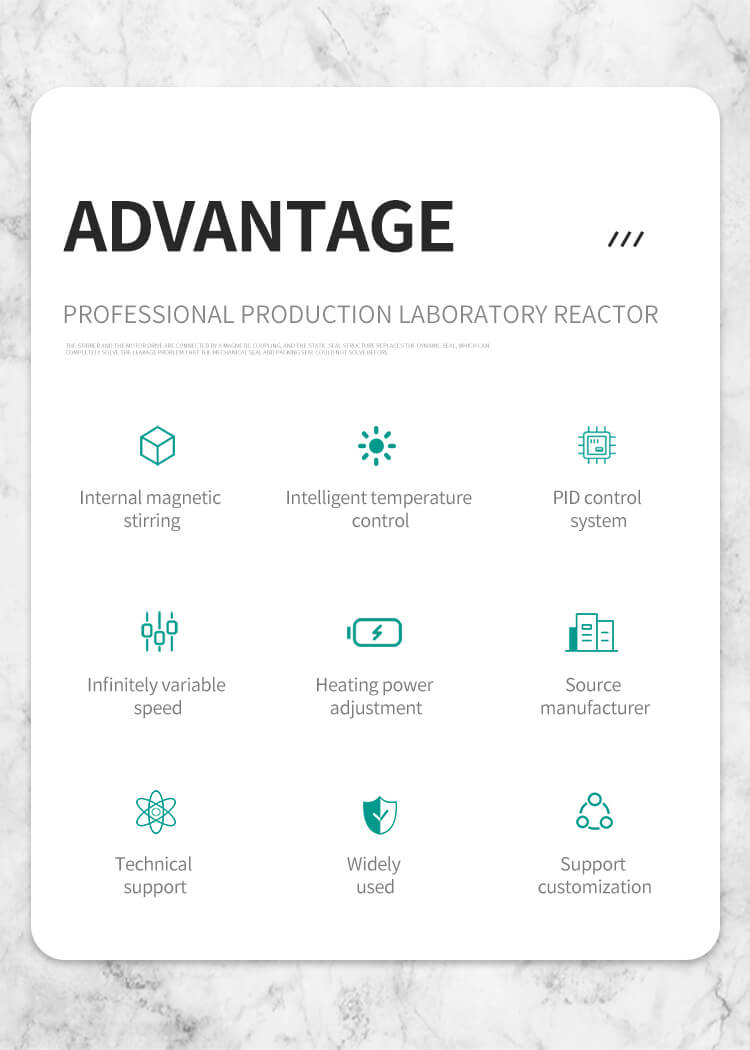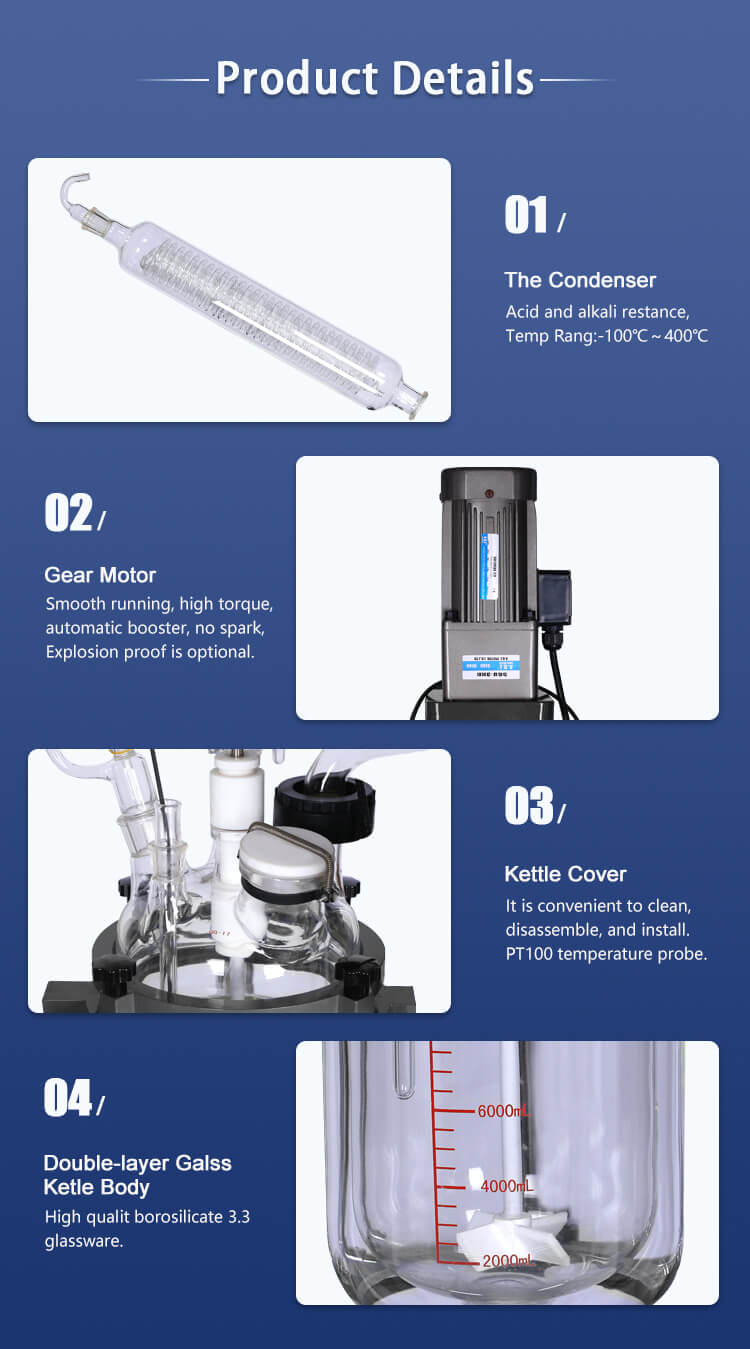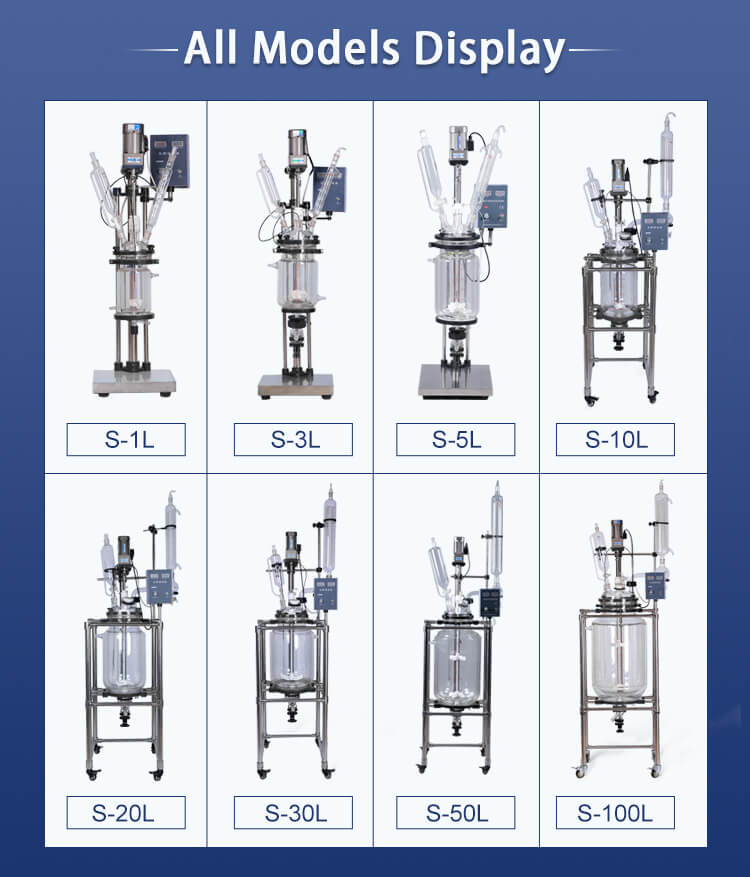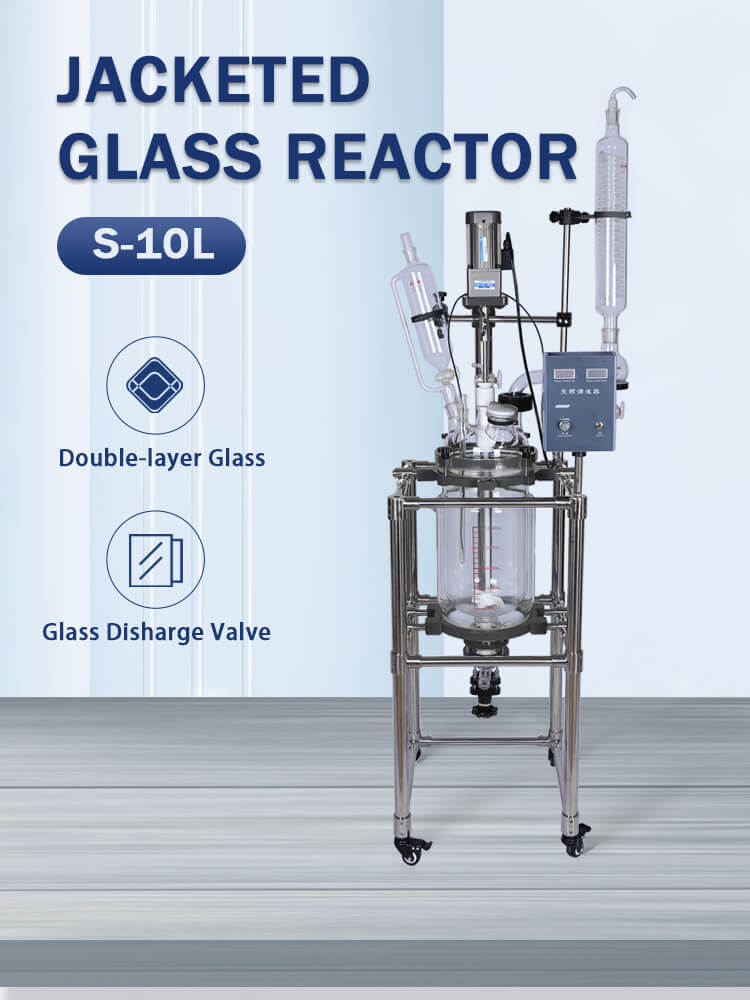When it comes to conducting experiments and research in the field of chemistry, efficient equipment and tools are crucial for accurate results. One such essential piece of equipment is the Glass Reactor. These glass lab reactors are widely used in laboratories, universities, and research institutes due to their versatility and reliability.

Glass lab reactors are designed to handle various chemical reactions, such as synthesis, mixing, distillation, and extraction. Their transparent glass construction allows researchers to visually observe the entire process, ensuring better control and understanding of the reactions. Furthermore, the glass material used is highly resistant to corrosion and harmful substances, making it a safe and ideal choice for carrying out experiments.

One of the key advantages of glass lab reactors is their flexibility. These reactors can be equipped with different accessories and modifications to meet specific experimental requirements. For instance, the addition of stirrers, temperature sensors, condensers, and reflux systems allows researchers to fine-tune operating conditions and gather accurate data. The versatility and customization options of glass lab reactors make them suitable for a wide range of applications across various scientific disciplines.

Another significant benefit of glass lab reactors is their scalability. These reactors come in various sizes, ranging from small-scale benchtop models to larger industrial-grade setups. This scalability allows researchers to start with smaller batches during initial experiments and then scale up to larger volumes for industrial production. Additionally, glass lab reactors can also facilitate process optimization by providing insights into reaction kinetics, heat transfer, and mass transfer in different operating conditions.

The maintenance and cleaning of glass lab reactors are relatively easy compared to other reactor types. The glass material is resistant to a wide range of solvents, chemicals, and temperatures, allowing for effective cleaning and sterilization. Additionally, the transparency of glass ensures no residues or contaminants are left behind, thus improving the repeatability and reliability of experiments.
In conclusion, glass lab reactors provide an indispensable tool for scientists and researchers in the field of chemistry and other related disciplines. Their transparent nature, flexibility, scalability, and ease of maintenance make them a preferred choice in various laboratory settings. Whether it's synthesizing new compounds, studying chemical reactions, or optimizing industrial processes, glass lab reactors play a vital role in advancing scientific knowledge and technological advancements.





